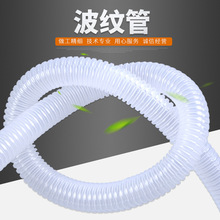It’s time to break up DHS.
Recently in War Stories
- There Are Only Three Ways Out of Israel and Hamas’ War
- There’s One Part of Brittney Griner’s Account of Life in Russian Prison That Really Stands Out
- Mike Johnson Is No Hero
- It Actually Seems Like Equilibrium Has Been Restored Between Israel and Iran
Rep. Alexandria Ocasio-Cortez got at least one thing right this week: The Department of Homeland Security should be abolished.
Ocasio-Cortez proposed breaking up DHS in a radio interview with New Yorker editor David Remnick, after which several Republicans began hammering her for the idea. “Absolute irresponsibility,” Rep. Liz Cheney exclaimed to a reporter. “Moronic, stupid, naïve, and dumb,” GOP strategist Karl Rove sputtered on Fox News.
It’s unclear why Dick Cheney’s daughter and George W. Bush’s former White House deputy chief of staff should find AOC’s suggestion so outrageous. A Democrat, then-Sen. Joe Lieberman, first proposed creating DHS in the wake of the Sept. 11, 2001, attacks, to show that his party could get serious about terrorism too—and then-President George W. Bush initially opposed the idea, saying that it would just pile on another layer of bureaucracy. That proved to be an understatement.
Bush finally relented after the 9/11 Commission concluded that the attacks happened, in part, because the FBI and the CIA hadn’t shared intelligence about the hijackers’ movements prior to the attack. This overstated the case, but suddenly consolidation became a popular nostrum to our problems, and in 2002, Bush signed Lieberman’s idea into law.
The organizations that didn’t consolidate—the CIA and FBI, the culprits that mishandled intelligence about al-Qaida in the first place—elevated their counterterrorism units, redirected their focus, and strung new lines of communications between them. Meanwhile the Department of Homeland Security subsumed 22 agencies from eight federal departments—with a combined budget of $40 billion (back then) and a payroll of 183,000 employees—into one hydra-headed, crossbred, poorly conceived monstrosity.
Advertisement Advertisement Advertisement AdvertisementIt wasn’t just the size that was the problem: Most of these agencies had been performing distinct functions; shmooshing them together wouldn’t necessarily make them more cohesive or efficient. In fact, it made each component less effective. Several of those agencies had been headed by officials with the standing of Cabinet secretaries, who could focus laser-like on their specific domains and had the clout to request direct access to the president. This is no longer true. The Secretary of Homeland Security, even a very good one, has the time and bandwidth to focus on maybe two or three of the department’s 22 areas. The other areas are now handled by undersecretaries or assistant (or deputy assistant) secretaries—people with less clout and less access, leaving issues less attended.
AdvertisementThe place is a well-known mishmash unable to attract top talent in the upper tiers, where policy is made, and unable to retain top talent in the middle tiers, where operations are managed.
Here’s one example: In the early 1990s, when the U.S. government started addressing cybersecurity, the Defense Department created a specially staffed joint task force for “computer network defense.” It had bureaucratic clashes with similar but separate units in the Air Force and the National Security Agency, but those in charge were beginning to figure out how to work together.
DHS is unable to attract top talent in the upper tiers, where policy is made—and unable to retain top talent in the middle tiers, where operations are managed.Then, after 9/11, it was decided that DHS would be responsible for defending the nation from cyberattacks (though the Pentagon and the NSA would remain in charge of protecting defense networks). The system of interagency arrangements, which had slowly been evolving, fell apart. DHS lacked the resources and know-how for its mission. During the early Obama administration, Secretary of Defense Robert Gates and Secretary of Homeland Security Janet Napolitano signed a memorandum of understanding allowing the DHS and NSA to work together in crises, but it was sabotaged by a DHS deputy who opposed any plan that helped turn the internet into a “war zone.” (The deputy was a few years late on trying to stop that development.)
Advertisement AdvertisementDHS has probably also had a deleterious effect on protecting security and civil liberties on the southern border, the main topic of Ocasio-Cortez’s concerns. Before 9/11, border matters were handled by the U.S. Customs Service and the Immigration and Naturalization Services, which the DHS fused into a new agency, Customs and Border Patrol.
Customs and the INS were run as fairly professional law enforcement agencies, with varying degrees of laxity or fervency, depending on the times. Under a more normal administration, CBP might still operate in that manner. But lassoed into a political department and run by a handpicked operative, it has turned into an enforcement squad for Trump’s obsessively anti-immigrant agenda. Even under Trump’s orders, would the competent bureaucrats of the old Customs Service have herded children into cages? Maybe. But they might have handled things in a more professional fashion because it would have been an independent agency following its own rules and codes, rather than a subset of a superagency run by a political appointee. Bureaucratic routines and regulations sometime serve a laudable purpose.
It’s very hard to turn back the clock to 2001 and dissolve DHS into its once-separate components, especially since most people don’t remember or even know that it wasn’t always this way. But maybe we should try. Republicans talk about dissolving federal agencies all the time. As Ocasio-Cortez put it in a clarifying tweet, “Discussing reorganization shouldn’t be out of the question.”
Tweet Share Share Comment相关文章

Wordle today: The answer and hints for August 29
Can't get enough of Wordle? Try Mashable's free version nowOh hey there! If you're here, it must be2024-09-23 雅安日报讯 4月底,石棉县农村饮水安全灾后重建项目通过竣工验收。该项目总投资288万元,恢复解决了该县11个乡19个村、108个组共2.49万人的饮水安全问题。 据了解,由石棉县发改局、财政局等部门组2024-09-23
雅安日报讯 4月底,石棉县农村饮水安全灾后重建项目通过竣工验收。该项目总投资288万元,恢复解决了该县11个乡19个村、108个组共2.49万人的饮水安全问题。 据了解,由石棉县发改局、财政局等部门组2024-09-23 雅安日报讯 调查人员在对成都公交车燃烧事件现场提取物进行化验后,发现大量汽油的成分,而汽油作为易燃物品是严禁携带上公共交通车辆的。对于这样的情况,我市各车站进一步加强了对易燃、易爆、易腐蚀的“三品”2024-09-23
雅安日报讯 调查人员在对成都公交车燃烧事件现场提取物进行化验后,发现大量汽油的成分,而汽油作为易燃物品是严禁携带上公共交通车辆的。对于这样的情况,我市各车站进一步加强了对易燃、易爆、易腐蚀的“三品”2024-09-23 在2004年之前,张欣一直在自己的家乡汉源县建设与规划局,从事质量安全监督工作。后来由于组织上的安排他被调到雨城区工作,直到2008年瀑电库区移民工作大会战誓师动员大会之前。 “我是汉源人,我要回2024-09-23
在2004年之前,张欣一直在自己的家乡汉源县建设与规划局,从事质量安全监督工作。后来由于组织上的安排他被调到雨城区工作,直到2008年瀑电库区移民工作大会战誓师动员大会之前。 “我是汉源人,我要回2024-09-23
22 Unusual Things You Can Find in the Desert
In the desert, it can seem like very little exists aside from dunes and a few creatures that are ada2024-09-23 本报讯 日前,记者从荥经县法院了解到,荥经县法院花滩法庭自2009年9月建成投入使用以来,创新调解方法,成功调解各类案件105件,调解率达95%,有力地维护了辖区社会稳定。为了更好地开展调解工作,促进2024-09-23
本报讯 日前,记者从荥经县法院了解到,荥经县法院花滩法庭自2009年9月建成投入使用以来,创新调解方法,成功调解各类案件105件,调解率达95%,有力地维护了辖区社会稳定。为了更好地开展调解工作,促进2024-09-23

最新评论